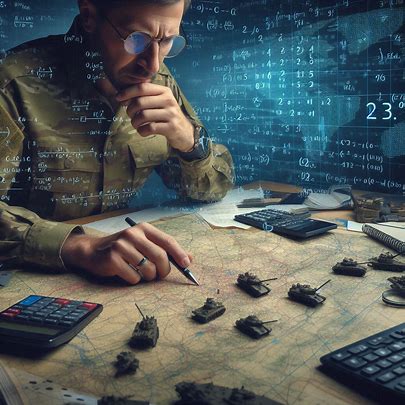Math and Military Strategy: The Critical Role of Mathematics in Infantry Training and Defense Operations

Mathematics plays a crucial role in military operations. From calculating artillery trajectories to managing logistics, numbers, and equations influence every aspect of modern warfare. Soldiers, strategists, and engineers rely on math to make quick, accurate decisions in high-pressure situations.
Foundational math skills can provide a strong advantage for students interested in government or military careers. Learning from Chapel Hill math tutors can help students develop problem-solving skills essential for fields like military intelligence, engineering, and logistics. A solid grasp of algebra, geometry, and calculus can prepare individuals for advanced military training and defense operations.
Mathematics in Military Strategy
Military leaders have used math for centuries to plan battles and predict enemy movements. Geometric principles help in fortifications, while probability and statistics are essential for assessing risks in combat. Game theory, a branch of applied mathematics, aids decision-making, allowing leaders to anticipate enemy actions and develop counterstrategies.
The Role of Math in Logistics and Supply Chains
Effective military operations depend on logistics. Troops require food, ammunition, fuel, and medical supplies. Military planners use mathematical models to optimize supply chains, ensuring that resources reach the right place at the right time. Linear programming and statistical analysis help improve efficiency and reduce waste.
Ballistics and Weaponry Calculations
Precision in targeting is critical in modern warfare. Soldiers and weapons engineers use calculus and physics to determine the trajectory of bullets, missiles, and artillery shells. Factors such as wind speed, gravity, and distance are calculated to improve accuracy. Advanced targeting systems incorporate algorithms to adjust for environmental conditions in real-time.
Cryptography and Cybersecurity
Military communications must remain secure from enemies. Cryptography relies heavily on number theory and complex algorithms, which help protect sensitive information. Cybersecurity specialists use mathematical models to detect and counter cyber threats, ensuring that military networks remain operational and safe from attacks.
Navigation and GPS in Defense Operations
Accurate navigation is crucial in military missions. Whether moving troops through unfamiliar terrain or guiding drones to their targets, mathematical equations ensure precise positioning. Trigonometry and satellite geometry allow GPS systems to provide real-time location data, helping military personnel operate accurately.
READ ALSO: Exciting Developments in the Military are on its Way
How Math Education Prepares Future Military Professionals
Students with strong math skills have an advantage when pursuing military careers. Many military academies and training programs require algebra, calculus, and statistics proficiency. Understanding mathematical principles helps recruits excel in technical fields such as engineering, logistics, and intelligence analysis.
Mathematics is an academic subject and a strategic tool influencing every aspect of military operations. From battlefield tactics to cybersecurity, numbers shape decisions that impact national security. Aspiring military professionals who build strong math foundations will be better prepared to serve effectively in defense operations.
